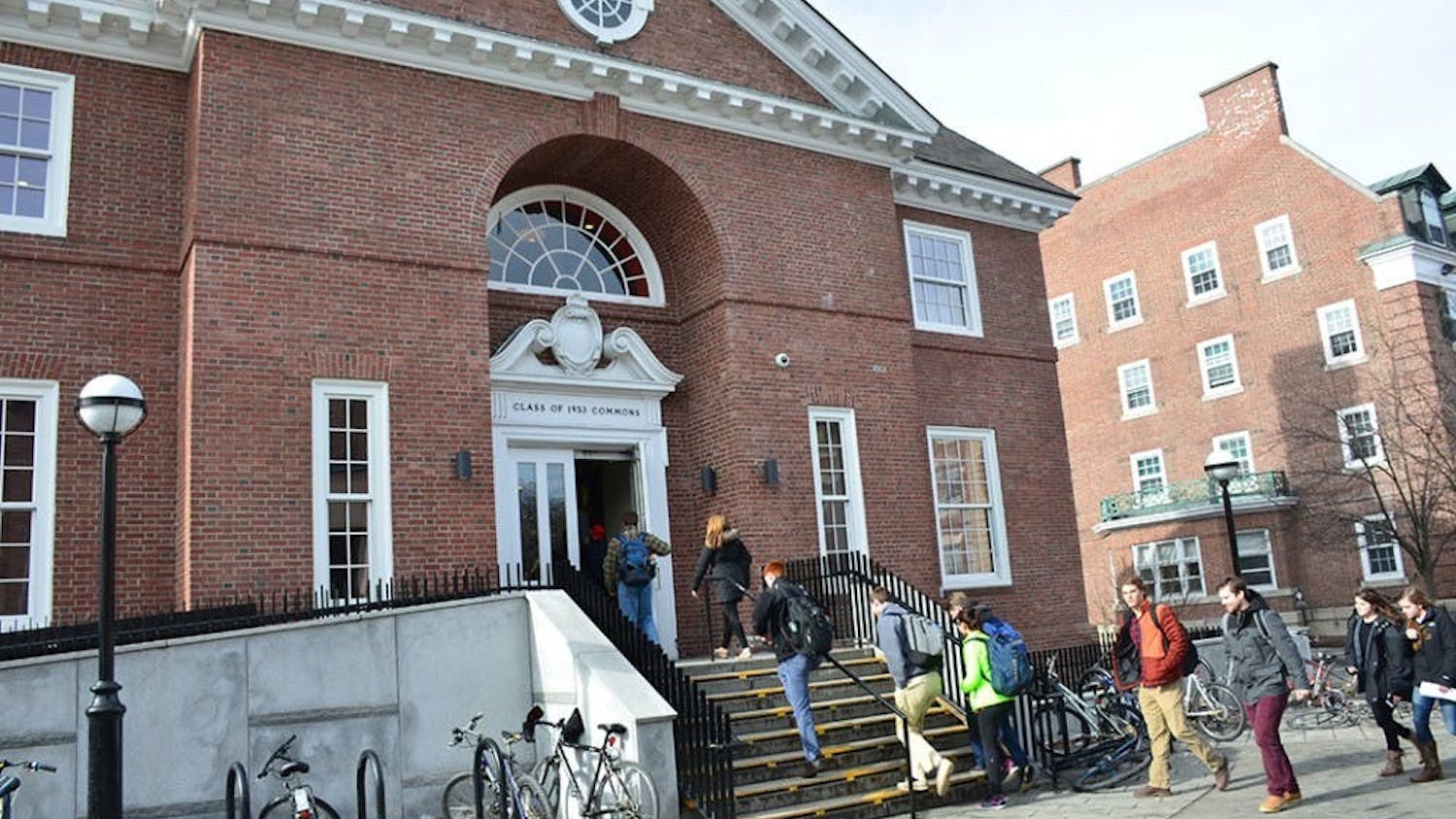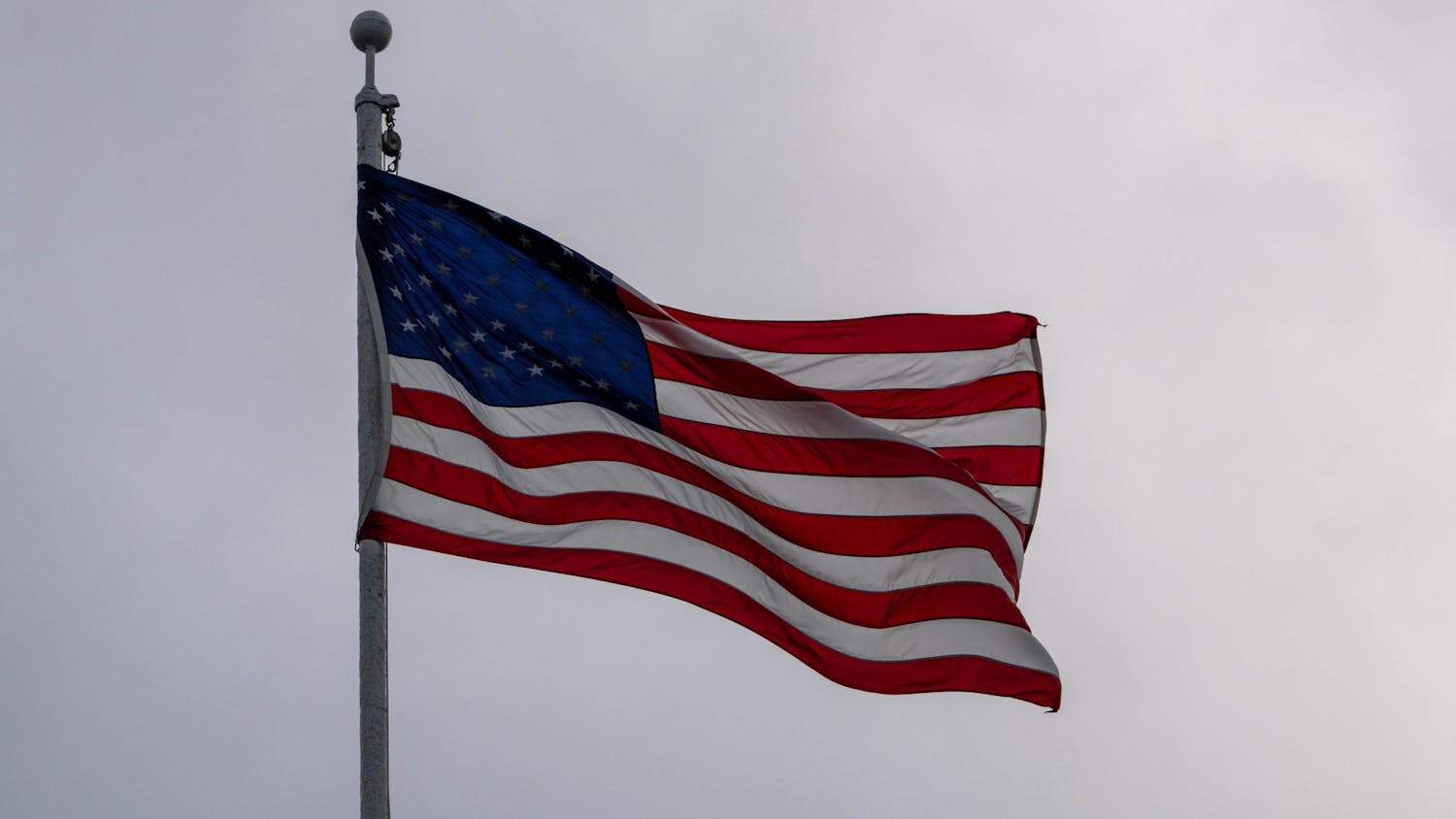Last night, students, professors and members of the Hanover community gathered for a panel in Filene Auditorium that focused on the future of the 2016 presidential race following the Iowa caucus and the New Hampshire primary. Government professors Linda Fowler, Joseph Bafumi and Dean Lacy discussed the concept of gender, experience and electability in relation to the presidential race in their discussion mediated by Ronald Shaiko, associate director of the Rockefeller Center for Public Policy.
Fowler spoke mostly on the issue of gender within Democratic presidential candidate Hillary Clinton’s campaign. She said that women will play an unusual role in this upcoming election, as more women participated in both the Iowa caucus and the New Hampshire primary than in previous years. She said that women historically have voted in the general election, but have abstained from voting in primaries.
Fowler also said that she thinks that Clinton must start emphasizing her strength, confidence and experience — qualities that are stereotypically masculine — in order to help her campaign. She said that Clinton’s qualities do not line up with the stereotypically feminine qualities in other female politicians.
“[Clinton] does not do so well in the caring department,” she said. “She needs to campaign like a man.”
Fowler said voters are now more willing than ever to vote for a qualified female candidate. In 1958, only 54 percent of the population would consider voting for a woman as qualified as her male counterparts, Fowler said. By 2010, that figure had risen to 95 percent.
Fowler and the other panelists also discussed the rise of Democratic presidential candidate Bernie Sanders. Fowler explained that before Clinton’s campaign was officially announced, people expected her to take most of the money and the resources of Democratic party, making her a shoo-in for the nomination.
“There was this guy over there in Vermont who didn’t get the memo,” Fowler said.
Both Bafumi and Lacy spoke extensively about the idea of electability. They both agreed that a far-left candidate like Sanders has qualities that are off-putting to the centralist electorate.
“There’s that whole thing about [Sanders] being a pro-gun socialist that does not fare well with a lot of people,” Lacy said.
Bafumi said that he thinks Sander’s class-based platform will not fare well with non-white constituencies, who might view the election from a racial standpoint.
Lacy also spoke extensively about what he calls the “insider versus outsider” phenomenon. He attributes this phenomenon to the success of candidates like Sanders and Republican presidential candidate Donald Trump, who both represent an “outsider” candidate.
“It’s all about who is going to change the system versus who is of the system,” he said.
Both Bufami and Lacy said that they think the Republican nomination is a toss-up. Bufami said there are still a lot of questions in the air regarding the nomination, especially after the differing results in New Hampshire and Iowa. With Republican presidential candidate Marco Rubio placing fifth in New Hampshire and third in Iowa, Bufami said that Trump and Republican presidential candidate John Kasich were most successful in the New Hampshire primary. He cited Trump’s high voter turnout and Kasich’s ability to perform well despite his comparatively small budget as indicative of their triumphs. In an interview with The Dartmouth after the event, Bufami said that whether or not a candidate like Trump is electable cannot be determined until later in the race.
“I guess we’ll just have to wait and see,” he said.
Joanne Needham, program officer for public and special events at the Rockefeller Center, said she counted 102 people at the event, which was in line with the number that they wanted. She said that the primary purpose of the panel is to inform the student body and the Upper Valley community about the candidates and the race.
“We want to help people be more educated voters,” she said.
Historically, the center has held panels like these after every primary and general election, she said.
She also said she thinks events like the panel showcase the expertise of the College’s professors, who have spent years studying government. Lacy and Bufami agreed with Needham’s sentiments, with both citing educating the community as the primary goal of the panel in interviews conducted after the event. Both professors said they viewed the event as very successful.
Garrison Roe ’18 said that he went to the event because after working on Clinton’s campaign for the last six months, he wanted to see what the next steps in the presidential race would be.
“I wanted to get an academic take on what will happen after New Hampshire, rather than just learning what you can read in the news,” he said.
Io Jones ’19 noted that it was unique to see faculty perspective on the election in a classroom-like setting.
Roe said he found Fowler’s discussion on gender bias within an election to be very interesting, given his time on Clinton’s campaign. He added that he enjoyed hearing about the Republican primary because he had focused largely on the Democratic side during his time on Clinton’s campaign.
Colette Rosenberg ’19 said she had heard about the event from a friend and from flyers that she saw in the library. She said that she liked how the panelists explained the statistics that they were presenting, which she would have otherwise not understood.
“The panel added dimension to numbers that would otherwise have limited meaning to me,” she said.



